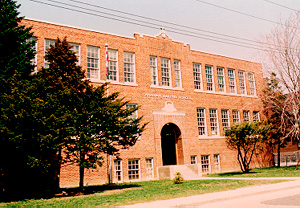Program Approach
It is our goal at PRCC to provide a nurturing learning environment in which children are viewed as competent, capable, curious and rich in potential and where each child’s optimal development is fostered and supported.
Families are valued and engaged, and recognized as the experts who know their children better than anyone else and have important information to share.
Educators are knowledgeable, reflective, resourceful and rich in experience and the experiences and environments they create for children are valued.
The goals and expectations for the program and educators at PRCC is to provide the best experiences and outcomes for children, families, and educators which includes an environment and program that:
- cultivates authentic, caring relationships and connections to create a sense of belonging among and between children, adults and the world around them;
- will nurture children’s healthy development and support their growing sense of self;
- provides an environment and experiences to engage children in active, creative and meaningful exploration, play and inquiry; and
- will foster communication and expression in all forms.
Daily Activities
On a daily basis, children are offered a rich variety of learning experiences and activities including:
- language, literacy, numeracy
- nature, science and technology
- construction, blocks and design
- drama, music and movement
- creative and sensory
- cognitive and manipulative
As well as:
- opportunities for physical activity and active outdoor play
- opportunities for rest, quiet and individual play
- social experiences in large and small groups
Here are samples of daily schedules for each room:

Curriculum
The EMERGENT curriculum model incorporated at PRCC supports this ideology and approach to ensure the content of learning is focused on supporting the development of strategies, dispositions, and skills for life-long learning through play and inquiry. The philosophy around emergent curriculum follows the Centre’s play-based approach and requires the collaborative work of children, teachers and parents. Emergent curriculum supports children to construct and direct their own learning process. The teachers at PRCC observe children as they interact in the environment, with each other, and with their teacher’s throughout the day. These observations are documented, which may include recording conversations, taking photographs, or taking notes of interactions and experiences as they occur. The documented observations will help to identify children’s interests and developmental progress, which will guide the teachers to plan future activities. These documented observations are shared with all teachers in the program and guide the ongoing planning of activities throughout each day.
The ELECT document (Early Learning for Every Child Today) is a guide used to support curriculum and pedagogy in Ontario’s early childhood settings, which includes child care centre’s, kindergarten classrooms, and other family support programs and early intervention services. The ELECT document provides a resource to the educators and outlines a continuum of development to understand the sequence of development for children in each of the age groups. It features a continuum of developmental skills and a shared language that will support early childhood practitioners and caregivers as they work together across early childhood settings. The ELECT document is used by the educators at PRCC to support the emergent curriculum and planning process to ensure that the children’s development and interests are incorporated and clearly identified in the planning process.

